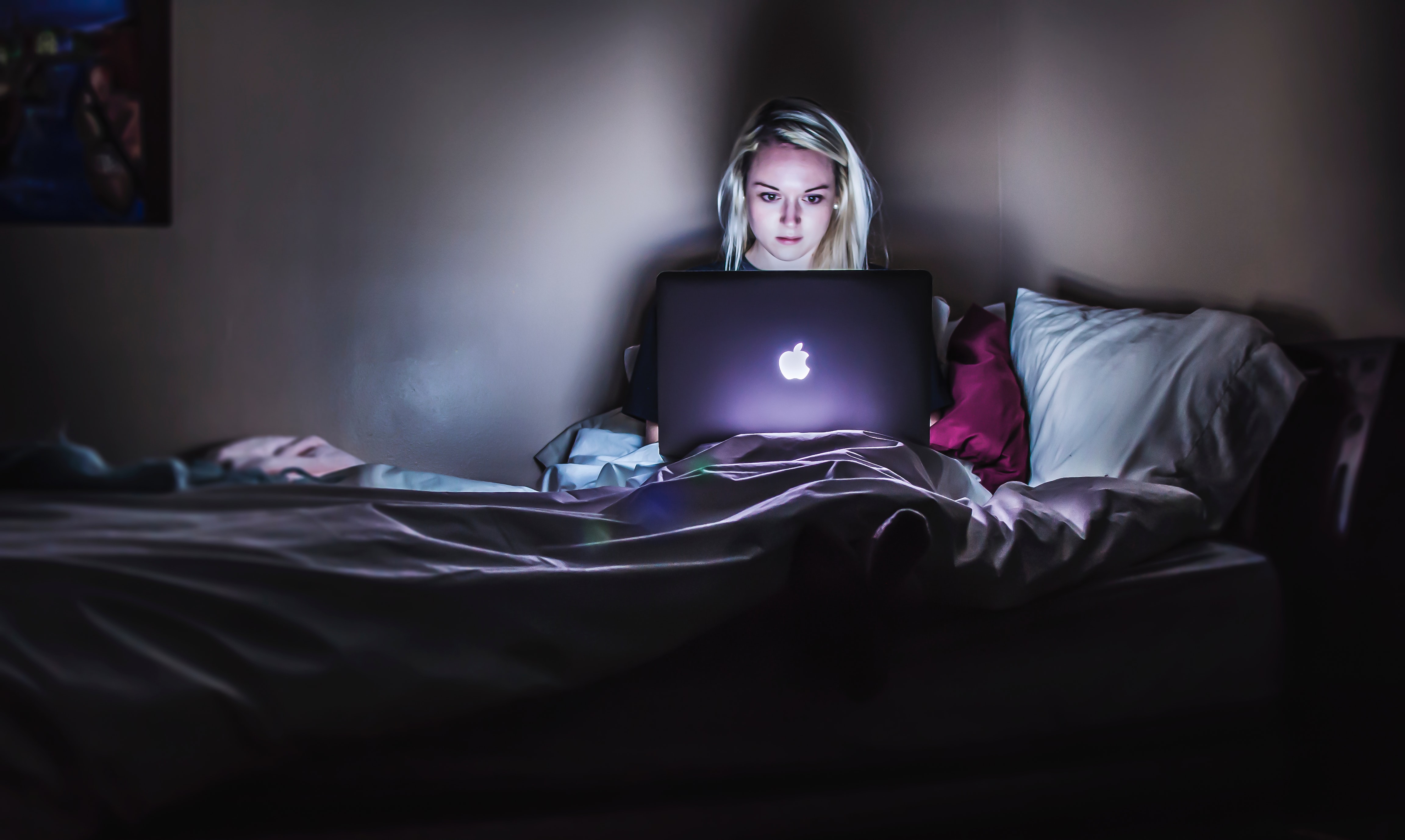
We live in the age of the 24-hour news cycle. It even leeches into our social media feeds if we’re not careful; we may crave peace-loving memes and photos of our friends’ four-legged companions, but every time we take the bait and click through to read a heartbreaking news story or the latest political fodder, the algorithm gods take note and feed us more of the same. Being tapped into the digital world can become downright overwhelming for many of us — but we don’t have to just brace ourselves and take it.
Take a moment to answer these questions for yourself:
- How are your physical, mental, and emotional states faring when you are constantly tethered to news and social media feeds?
- Do you notice yourself feeling tense or angry — not just when you see or read an upsetting news story or social media thread, but throughout the day as you’re thinking about it?
It really is tempting to stay connected to the world’s ever-evolving storylines and dramas, but if they are compromising your sense of wellness and inner peace (and they really are for many of us), it may be time to consider a change.
Don’t worry, you don’t have to give up knowing what’s going on in the world. You may simply need a backup plan for how to find a balance between caring for yourself and staying informed. Fortunately, there is a simple and easily accessible tool that can help: mindfulness. Here are some ways to get started.
- Try something new: Which info streams do you partake of most? A favorite cable news channel? Your most-used social media stream? Try switching the form and frequency of your consumption. For example, if you watch news programs every evening, try skipping that for a week and only getting your news from the radio for an hour in the morning, or an hour-long afternoon review of your most-liked online news publications. If you typically find yourself lost in your Facebook news feed, try something more light and playful like Instagram, Pinterest, or TikTok. Breaking the pattern of information consumption that causes you stress by consciously choosing the “what, where, and when” of your news cycle can be empowering.
- Take a break: Challenge yourself to take a technology break. Try one whole day to start, then try two, then maybe go all weekend. Make it fun! Plan activities, interactions, outings, or quiet time that are completely free of smartphones, computers, and tablets. It really can do wonders for your well-being. This would be a great opportunity to check your joy list and see what activities could work well for the time you set aside.
- Make a difference: Don’t let bad news or online divisiveness make you feel powerless, because you’re not. You can choose to take specific actions that make a difference in the world for the people and causes you care about most. One of the best ways to do this is to volunteer for or donate to a cause you believe in. I have personally given money to Together Rising to provide emergency relief to children detained in atrocious conditions across this country, and to fund long-term legal accountability to end this disaster. I also donate to the Southern Poverty Law Center and the Anti-Defamation League to combat hate. I give to a couple of strong gun control organizations, as well, and chief among them are Everytown for Gun Safety and Fred Guttenberg’s charity for gun safety in memory of his daughter, Jaime, who was murdered in the Parkland High School shooting in Florida. There are hard, painful truths in this world — and you can still serve as a force for good.
You might be wondering, what do these tips have to do with mindfulness? Mindfulness is the practice of encountering our way of thinking, feeling, and being with deliberate awareness, then choosing how we’d like to think, feel, and be next. There are many ways to utilize this beautiful, life-changing practice, from meditations to everyday shifts in awareness. The suggestions shared here are part of the latter.
The more you choose what you wish to experience and how you want to respond, the more peace you will incorporate into your days and your life. It’s easier than you think to get started. Pick one thing, and try it today.

